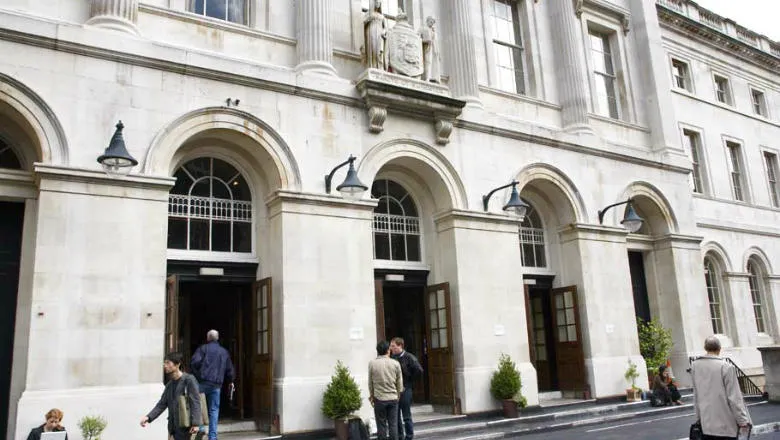06 April 2020
New Arts & Humanities projects at the forefront of COVID-19 response
As coronavirus continues to affect the world, experts in Arts & Humanities are at the forefront of pioneering research. Exploring the power of language, the need for creative toolkits, and its impact on religious principles, cultures of care and online engagement, our projects advance public knowledge about COVID-19.

A key strength of the Faculty of Arts & Humanities is our ability to meet the challenges of today conceptually, historically and imaginatively. By working across disciplines, our experts and colleagues are discovering innovative ways to engage with and respond to the Coronavirus (COVID-19) pandemic. Through our newly commissioned projects and academic research, our experts are addressing the most pressing issues being faced in the world today.
Worldmaking in the Time of COVID-19
Awarded money from the King’s Together Coronavirus Rapid Response Fund, the Worldmaking in the Time of COVID-19 project is being led by Professor Catherine Boyle of the Department of Spanish, Portuguese and Latin American Studies and Principal Investigator of the AHRC-funded Language Acts & Worldmaking project.
The project investigates the ways in which COVID-19 has been narrated across the world. It seeks, through studying key terms in several languages, to contribute to the understanding of the cultural and geopolitical significance of Coronavirus. How do the terms we hear in the UK – around, for example, the concepts of war, contagion, invasion, isolation, community – compare and relate to those that might circulate and form meaning in other cultures? What can we learn from this? The project will employ the skills of Modern Languages and Digital Humanities to ask how we use language to shape the world around us in times of crisis.
The Experience Economy in the Time of COVID-19
Another beneficiary of the King's Together fund is The Experience Economy in the Time of COVID-19, led by Dr Stephanie Janes, with other academics from the Faculty, as well as other institutes, joining the team. Together, they will research and deliver alternative cultural experiences for vulnerable audiences to maintain access to arts and culture amid the global shutdown of an unprecedented number of cultural institutions. During the crisis, it has never been more crucial to preserve access to arts and culture, and find ways remotely to promote their associated empathy, intimacy, emotion, creativity and closeness. The project will not only respond to the current crisis but will also address broader questions concerning access in the cultural sector.
#CORONASPEAK - the language of COVID-19 goes viral
Tony Thorne, a Visiting Consultant in the Modern Language Centre at King’s and leading specialist in contemporary slang, also studies the impact of the pandemic on language. In his blog, he reveals how phrases typically employed in sociology and psychology such as social-distancing are undergoing shifts in meaning and usage, while more technical words such as ventilation, respiratory and PPE are becoming a part of the everyday conversation as ordinary people make sense of and adapt to new circumstances under lockdown.
Digital Cultures of #COVID19
How are people engaging with and responding to COVID-19 on the web, online platforms and other digital spaces? How can journalists and researchers collaborate and learn from each other to tell stories about the role of digital technology in times of lockdown? Dr Jonathan Gray and Dr Liliana Bounegru in the Department of Digital Humanities are working together with the Public Data Lab, the Digital Methods Initiative, DensityDesign Lab and journalists and media organisations at the First Draft Coalition to co-develop digital methods to investigate what the WHO has called an “infodemic” of misinformation associated with COVID-19, as well as other online cultures and practices which respond to the crisis. This builds on approaches from new media studies and science and technology studies, as well as previous collaborations such as the Field Guide to “Fake News”.
The #CovidCreativesToolkit
Also in Digital Humanities, Dr Kat Braybrooke is a Visiting Researcher who has curated the #CovidCreativesToolkit in collaboration with over 30 other curators from around the world across arts, technology and cultural sectors. This toolkit offers a set of open, free and remixable resources, ideas and pathways for creative practitioners (from artists and makers to musicians and educators) who find themselves having to go digital due to social distancing. As the pandemic transforms every aspect of their lives and working conditions, the kit’s seven sections support the many aspects of this transition, from digital organising tools to digital well-being. The toolkit continues to be updated through ongoing conversations on Twitter, and further contributions are invited.
(Aug 2022 - Department of Spanish, Portuguese and Latin American Studies is now the Department of Languages, Literatures and Cultures).

The Corona Fatwas
Dr Carool Kersten, Reader in the Study of Islam & the Muslim World in the Department of Theology & Religious Studies, investigates how during times of uncertainty the faithful in Muslim countries have turned to Islamic religious scholars for reassurance and information. His study looks at how fatwas (legal opinions) informed by historically significant scholars are acting as a source of guidance on religious practice during the global crisis. He has also commented on the impact on sites of pilgrimage and the empty Grand Mosque of Mecca, usually populated by pilgrims.
History of Feelings during Intense Contagions
Dr Kelina Gotman is a Reader in Theatre and Performance Studies in the Department of English and specialist in the history of ideas about epidemiology. She is researching the emotional repercussions of the coronavirus pandemic on everyday lives by bringing her attention to the practices of stillness and isolation. She draws on the Greco-Roman practices of the self and suggests that coming to terms with the peaceful work of ‘being alone with ourselves’ can allow us to live more deeply. While the current crisis offers a threat to mental and physical health, she explores how it also provides hopeful opportunities to engage in care and knowledge of the self, driving men and women to access a more profound sense of community, continuity and contact.
Arts & Humanities responding to COVID-19 in the Media

Others in the Faculty of Arts & Humanities at King’s have been featured in the media providing expert comment on COVID-19 and its impact through radio, print, online news and television appearances:
- Dr Jon Day (Department of English) says in the Financial Times: “Fiction’s affinity with infection goes back as far Defoe, as themes of adventure, social commentary and survivalist instruction merge” Read: Contagion novels: chronicles of a plague. (18 March 2020)
- Dr Caitjan Gainty (Department of History) writes in The Times: “It seems impossible not to adopt the language of war to explain our current circumstances” Read: To understand the future of healthcare, listen to Henry Ford. (24 March 2020)
- Dr David Brydan (Department of History) writes in the Huffington Post: “The history of the World Health Organisation shows how global health is entangled with global politics”. Read: The Coronavirus Response Was Never Just About Saving Lives. (30 March 2020)
- Dr Paolo Gerbaudo (Department of Digital Humanities) writes an opinion piece for The Guardian offering his thoughts on the political consequences arising from the coronavirus crisis which has momentarily disoriented populist right leaders. Read: Coronavirus embarrassed Trump and Bolsonaro. But the global right will fight back. (1 April 2020)
- Shir Shimoni, (PhD candidate, Department of Culture, Media and Creative Industries), writes for The Conversation about how the elderly have come to occupy a central place in our news bulletins these days. Read: Coronavirus exposes the way we regard ageing and old people. (3 April 2020)
- Professor David Edgerton (Department of History) debates how the Coronavirus pandemic is nothing like the Second World War in an opinion piece for the New Statesman. Read: Why the coronavirus crisis should not be compared to the Second World War. (3 April 2020)
- Dr Lawrence Napper (Department of Film Studies) is quoted by BBC Culture in response to the impact of the Cinema industry during times of crisis: "There are a lot of letters to the trade press from cinema managers saying the closing of cinemas because of the flu is nonsense, [and asking] 'What about sporting events and factories? Why should it be cinemas that take the financial hit?' Read: Why cinemas will bounce back from the Coronavirus crisis. (6 April 2020)
- Dr Daniel Allington (Department of Digital Humanities) suggested there was a statistically notable link between people who believed false claims about the coronavirus and people who were willing to flout the government's social distancing guidelines in The Guardian. Read: Influencers among 'key distributors' of coronavirus misinformation. (8 April 2020)
- Tony Thorne, Linguist from the Modern Language Centre, highlights a new emerging slang called "coronaspeaks" in an article by The Sun. Read: A Case of the Miley Cyrus Learn the new wave of coronavirus slang from 'Miley Cyrus' to 'covidiot'. (18 April 2020)
- Dr Mercedes Bunz (Department of Digital Humanities) speaks about the NHS contact tracing app, how it will work and how data will be used in the Evening Standard. Read: How does the NHS's new contact tracing app work? Here's what you need to know.(30 April 2020)
- Professor David Edgerton (Department of History) on the cynical fantasies about innovation and exceptionalism providing a common strand with Covid-19 and Brexit in the New European. British exceptionalism: Where Brexit and our coronavirus response collide. (3 May 2020)
- Dr Carool Kersten (Department of Theology & Religious Studies) discusses how the Coronavirus pandemic has impacted communal worship during Ramadan in a TRT World panel interview. Watch: Lockdown Ramadan: Faith in a time of crisis. (6 May 2020)
- Dr Rachael Kent (Department of Digital Humanities) suggests in Forbes that social media is both helping connect people during isolation as well as creating new pressures of productivity and 'performativity' towards others online. Read: Should We All Social Media Detox After The Pandemic? (7 May 2020)
- Professor David Edgerton (Department of History) responds to the UK's decision to ask manufactures to produce virus-fighting gear and if it will be enough to improve the industry's outlook in Al Jazeera. Read: Could coronavirus reshape British manufacturing? (8 May 2020)
- Professor David Edgerton (Department of History) says in the cover story for SPEARS: "We have been living with a crisis of legitimacy of British politics and a hollowing-out of the state to act. Both this epidemic and Brexit have been real tests of that. I had been expecting the realities of Brexit to hit that de-legitimised, incapable state machine, but actually it's Covid-19 that has hit first." Read: Where will Covid-19 leave us in five years? ( 2 June 2020)
